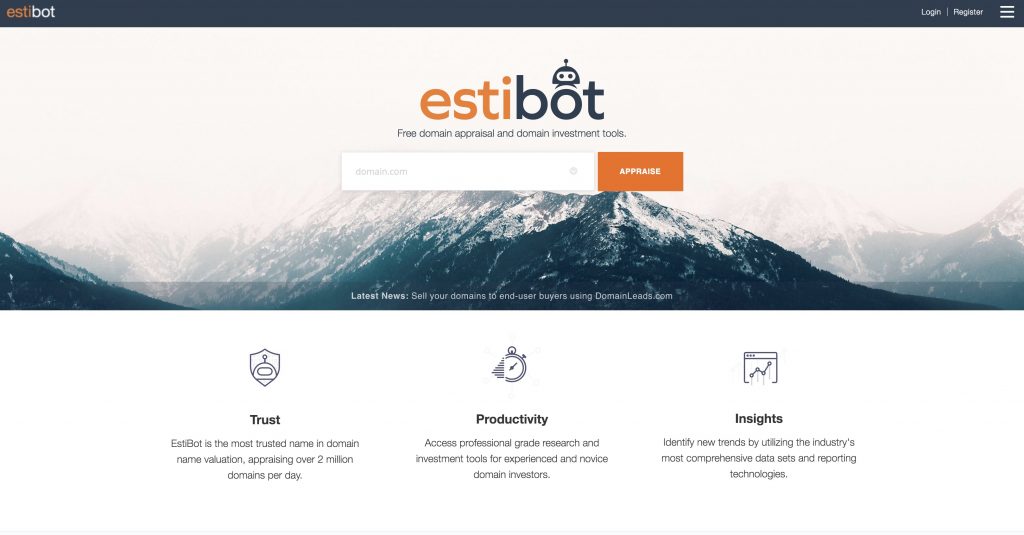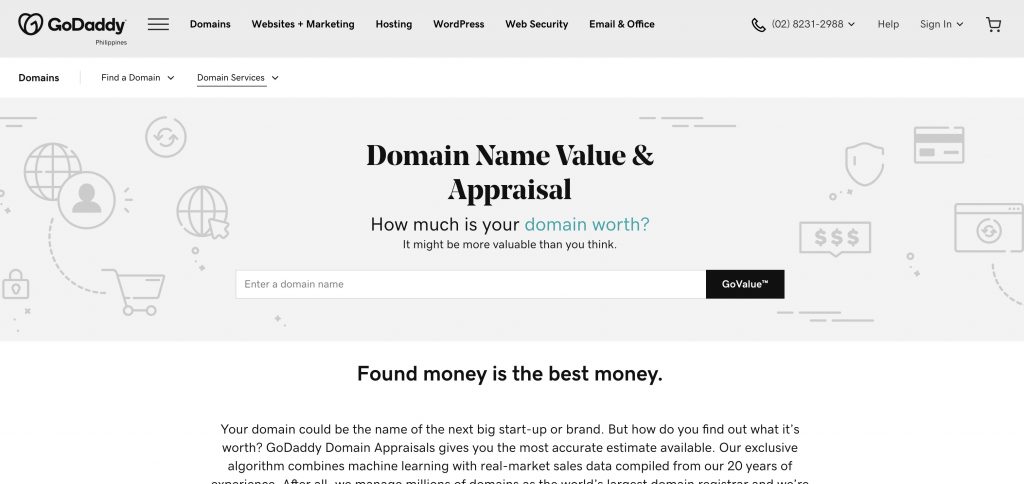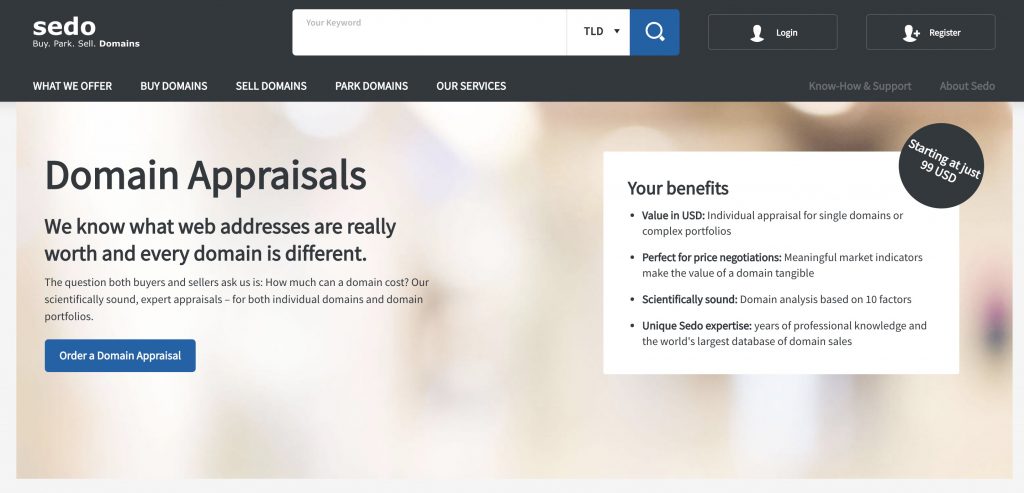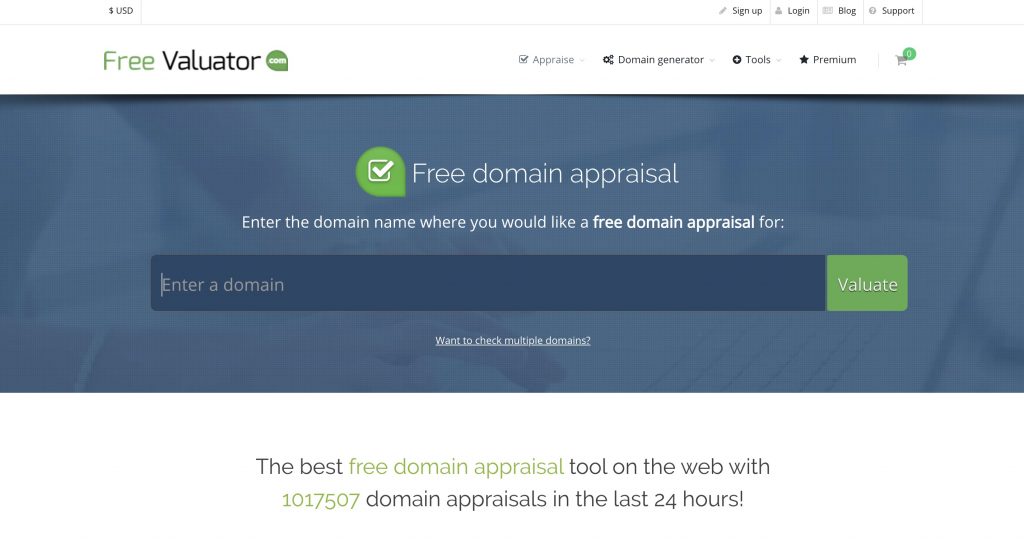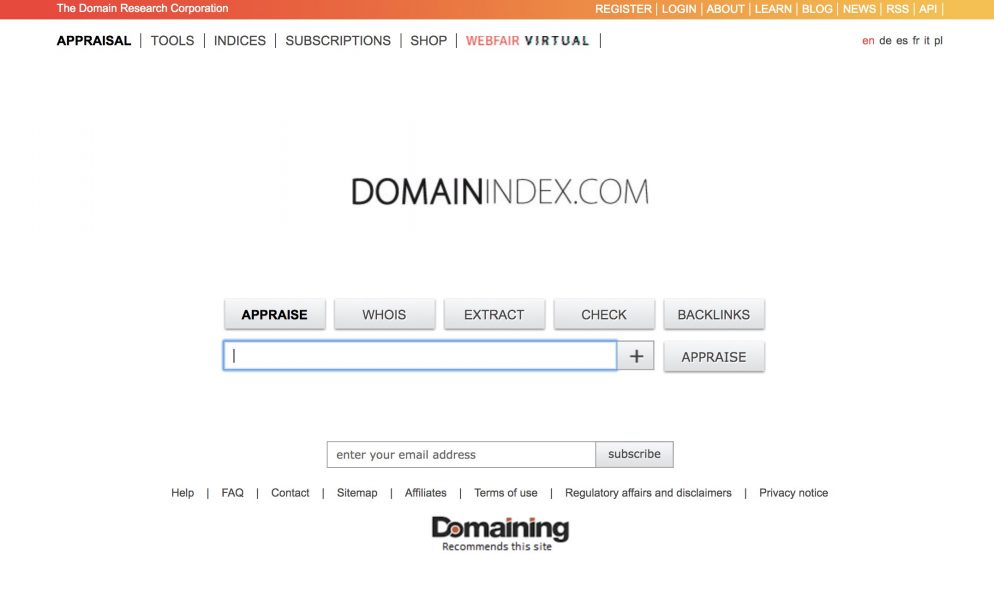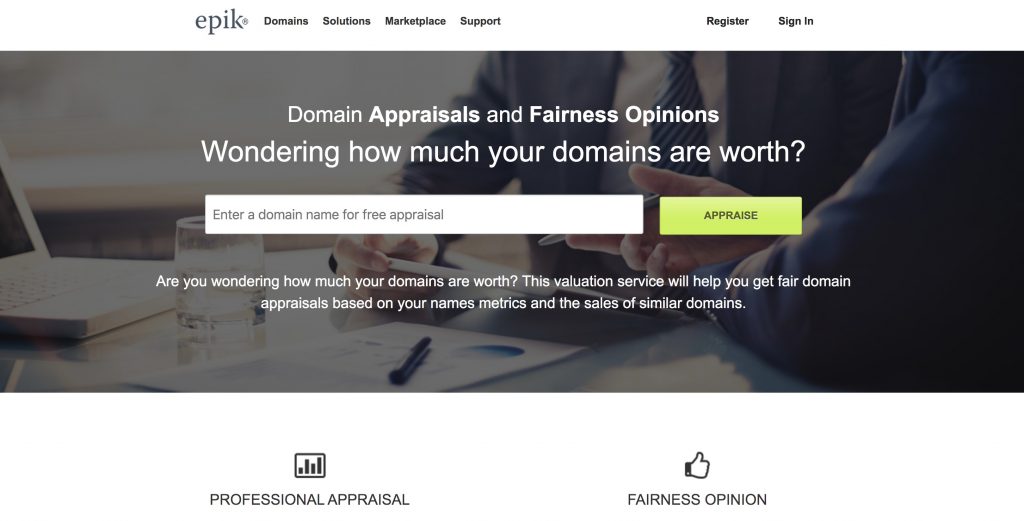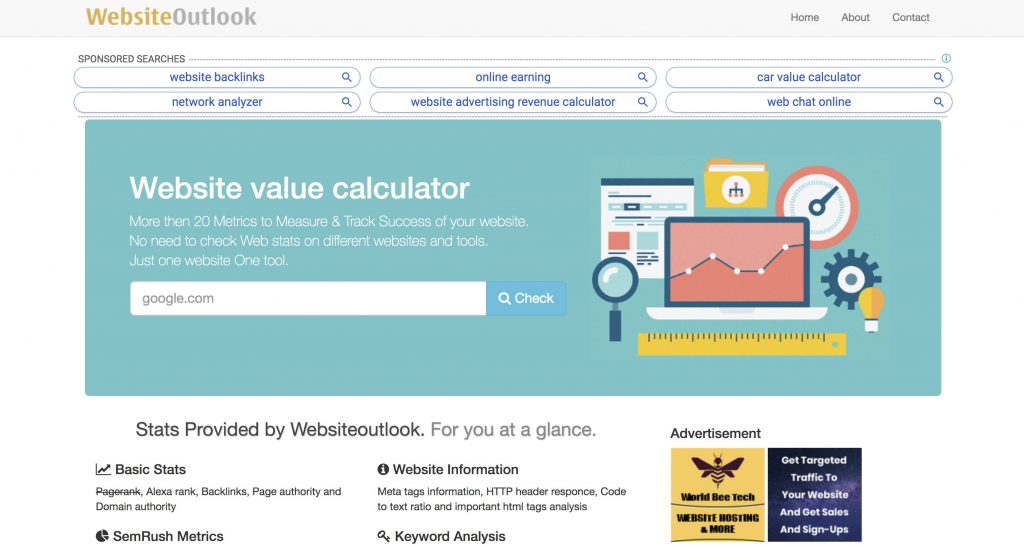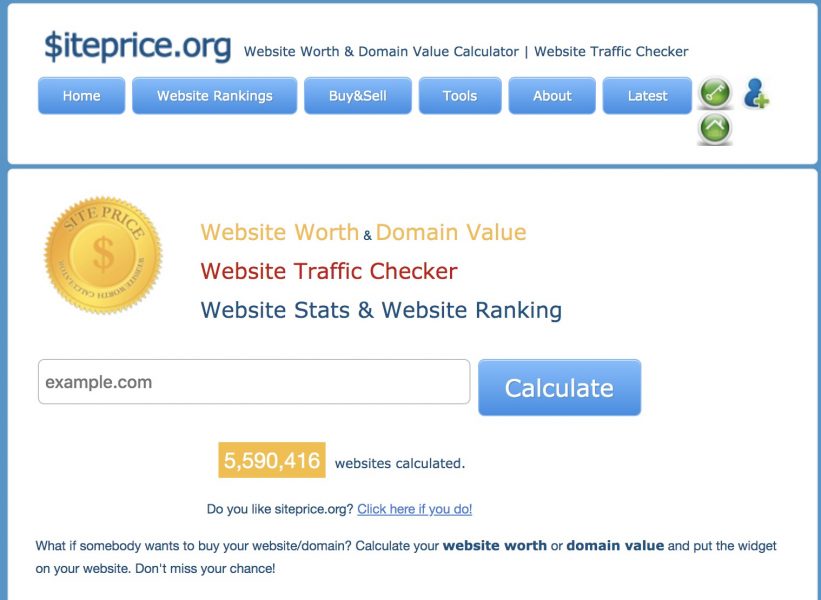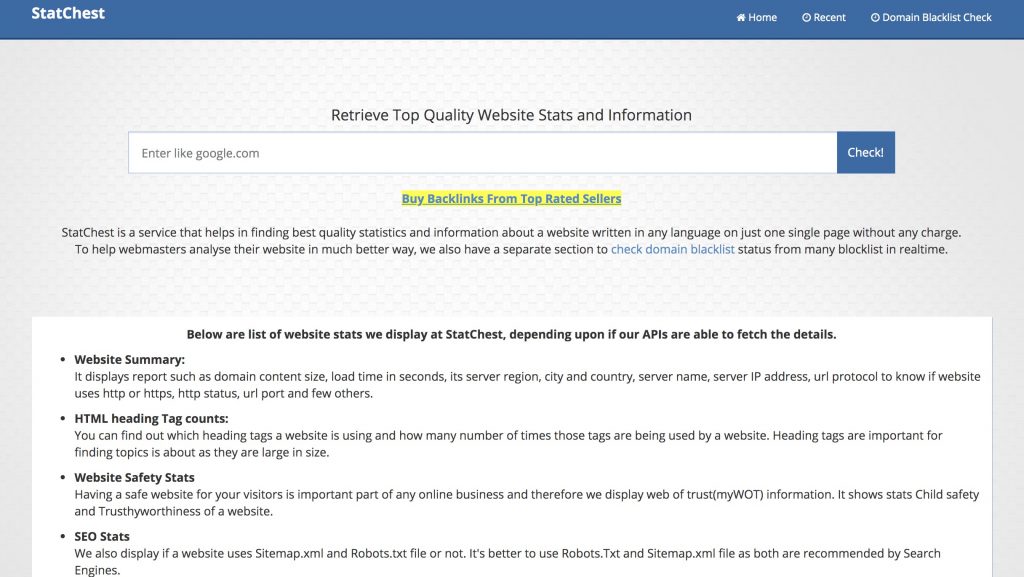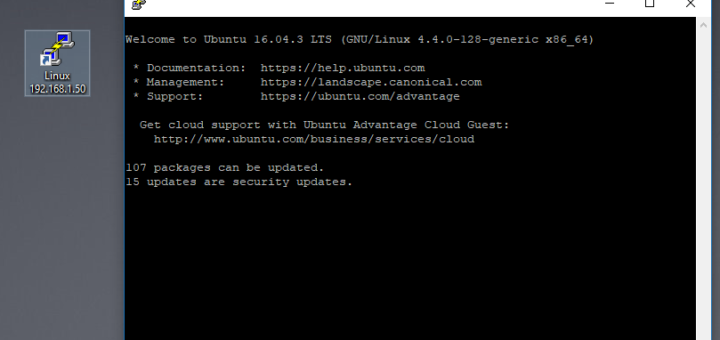1. Estibot
Estibot offers a free tool for domain appraisals that collects a lot of data you can use to nudge a sales price.
From the homepage, you can enter any name and click to see a report card of data about it. You’ll learn:
- The last sale price
- The sale price of comparable domains (and the dates they sold)
- The search volume of the domain’s name
- SSL status
Estibot provides you with a fair market estimate for any website that you enter. That number is just an estimate, though. You can use the rest of the data to make your own call.
2. Flippa
Flippa has a valuation tool that starts by asking how you want to monetize the site.
After you enter a site into its valuation calculator, you’ll be able to get a reading based on whether you want to use the site for:
- eCommerce
- Content/advertising
- SaaS
- Affiliate marketing
- Apps
This allows you to get a more personalized evaluation of your site.
While the tool will give you a calculation, Flippa is also known for its community valuations. Members can create and share their own estimates for sites based on their experiences of buying and selling websites.
3. GoDaddy
GoDaddy has a light appraisal tool that may still cover all your needs. Simply type in any existing (or hypothetical) URL to get a free domain appraisal.
If GoDaddy determines that it is valuable, it will give you an estimate and some reasons. For example, the tool will analyze whether the name is memorable or whether it contains valuable keywords.
GoDaddy also provides a list of comparable domains sold. This information is drawn from the data that they have access to as a large domain aftermarket. Not all of this data may be available elsewhere.
4. Sedo
Sedo is a massive marketplace of domains. To better serve this market, they’ve added several services, including appraisals.
This paid service ($99/report) treats each evaluation like a research project. Instead of providing you with existing data, Sedo passes your request to their on-staff experts who do a personal review of your domain value and niche.
Sedo’s expert looks at factors like search engine suitability, advertising effectiveness, and how much potential a site has to sell.
A custom report is prepared for you and delivered to your email a few days later.
5. Free Valuator
Free Valuator is a tool that calculates an estimate based on keywords, statistics, and website rankings.
That’s all pretty standard, but it has a couple of features you might not find anywhere else. For example, it has a crowd appraisal feature that lets you crowdsource opinions about the reasonable estimate for a domain. You’ll get a good idea of whether or not the community thinks a buy or sell is worthwhile.
While the basic service is free (with registration), you can also opt for a professional appraisal. This type is done by site staff and costs $69.
6. Domain Index
Domain Index isn’t the strongest tool, but it does provide you with a quick rundown of domain-related stats that are helpful when you are buying or selling. Some of this information isn’t easy to find with other services.
- The age
- TLD rating
- Language of keywords
- Monthly types-ins
- Whois records
You can perform a few searches without even registering, but you’ll need to log in and pay for some of the more advanced features—including paid consultations with experts in domain names.
7. Epik
Epik is a free tool that gives you an estimated dollar amount along with a rundown of both standard and uncommon statistics.
This is a decent tool to use if you’re looking for any of the following data:
- The language used on the website (by percentage)
- Average monthly searches for the name
- Average CPC
- Alexa and Google page rank
If you want to take the next step up, you can try the professional appraisal that they also have available ($399).
8. Website Outlook
Website Outlook is a free tool that calls up more than twenty different metrics in order to determine the real value of your domain.
The tool seems to be geared toward the needs of SEOs. In any case, it gives you a lot of insight into how other popular SEO tools are interpreting the value of a domain. In addition to the standard metrics, it tracks:
- Moz rank
- Semrush rank
- Adwords traffic/budget
These metrics could give more ideas for how to monetize sites that you’re purchasing for SEO purposes. If you’re selling, they could provide some ideas on how to communicate the site’s worth to SEO-focused buyers.
9. $iteprice
$iteprice offers a no-frills domain appraisal tool that provides you with a rundown of data based on the information it draws from several different sites.
While it has many features in common with others on this list, it emphasizes ad revenue stats over other monetization methods. For that reason, it’s valuations are based on the assumption that the site uses Google Adsense.
It crawls individual sites to pull meta and site information, but it also draws from sources like Moz, Majestic and Facebook to put together an extended list of facts advertising revenue, traffic rank, and visibility.
10. StatChest
StatChest prides itself on having an exhaustive list of stats (hence the name). There are certainly some here that you won’t see in some other services on this list.
This service keeps track of many of the ways that the wider internet interacts with the site. For example, it tracks:
- Facebook’s share counts
- Facebook comment counts
- Tweets that use the name
- Pinterest pins that use the name
The final set of stats covers page speed recommendations. In cases where the tool finds bad practices (for example, render-blocking resources or overly-large images), it makes recommendations on how to improve page speed.
Get the Right Price or a Better One
If you’ve tested any of them so far, you may have noticed that each domain valuator on this list put out different estimates.
This isn’t a flaw. There is no firm rule for pricing a website. You have to know how to argue for the value. The stats you pick up from using several of these services can help make a better argument and get a better price.
